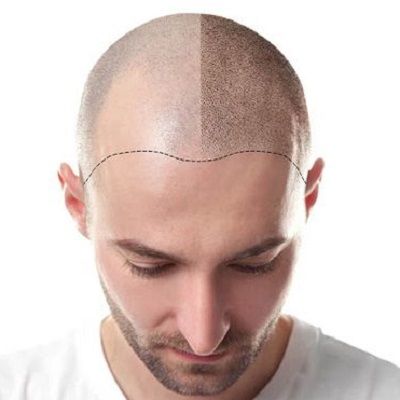Introduction
Hair loss can profoundly impact one’s psychological well-being, influencing self-image, social interactions, and overall quality of life. For many individuals, hair loss is more than a physical change; it affects their self-esteem and emotional health. The Hair Transplant Oman has emerged as a solution that not only addresses the physical aspects of hair loss but also offers significant psychological benefits. This article explores how hair transplants contribute to restoring confidence and self-esteem, providing a comprehensive understanding of the positive mental health outcomes associated with this treatment.

Process
1. Consultation and Assessment
The journey to restoring confidence begins with a thorough consultation with a hair restoration specialist. During this initial visit, the specialist assesses the extent of hair loss, discusses treatment options, and determines the suitability of a hair transplant. Psychological evaluations may also be conducted to understand the emotional impact of hair loss on the individual.
2. Pre-Procedure Preparations
Once a hair transplant is deemed appropriate, pre-procedure preparations include discussions about expectations and setting realistic goals. The patient is informed about the procedure, recovery process, and potential outcomes. This stage is crucial for managing expectations and reducing anxiety related to the upcoming surgery.
3. Hair Transplant Procedure
The procedure itself involves harvesting hair follicles from a donor area (typically the back of the head) and transplanting them to the thinning or balding areas. The most common techniques are Follicular Unit Transplantation (FUT) and Follicular Unit Extraction (FUE). The choice of technique depends on various factors, including the patient's specific needs and preferences.
4. Recovery and Follow-Up
Post-procedure, the patient undergoes a recovery period where they follow specific care instructions to ensure optimal healing and hair growth. Regular follow-up visits with the specialist monitor progress and address any concerns. Emotional support during this phase can be essential as the patient anticipates seeing the results.
Benefits
1. Restoration of Self-Image
Hair transplants can significantly enhance self-image. For many individuals, a fuller head of hair restores a youthful appearance and aligns their physical appearance with their self-perception. This renewed self-image can have a profound effect on overall confidence and self-esteem.
2. Improved Social Interactions
Hair loss often leads to social withdrawal and self-consciousness. By restoring a more natural hairline, individuals often feel more comfortable engaging in social activities and interacting with others. This improvement in social interactions can lead to a more active and fulfilling social life.
3. Increased Self-Confidence
The psychological impact of hair loss can lead to feelings of inadequacy and decreased self-confidence. A successful hair transplant can reverse these feelings, leading to increased self-assurance. The ability to look in the mirror and see a positive change can significantly boost confidence levels.
4. Enhanced Emotional Well-Being
The emotional benefits of hair restoration extend beyond immediate self-esteem improvements. Individuals often experience reduced anxiety and depression related to their appearance. This emotional uplift can contribute to a more positive outlook on life and improved overall mental health.
Characteristics
1. Natural-Looking Results
Modern hair transplant techniques focus on creating natural-looking results by mimicking the natural growth patterns of hair. The goal is to provide a seamless blend with existing hair, enhancing the overall aesthetic outcome.
2. Personalized Treatment Plans
Each hair transplant is customized to fit the individual's unique needs and goals. Factors such as hair type, desired density, and recipient site are considered to tailor the treatment plan, ensuring the best possible results.
3. Long-Term Solution
Hair transplants offer a long-term solution to hair loss. Once the transplanted hair follicles begin to grow, they generally continue to grow for a lifetime. This longevity provides a lasting improvement in appearance and self-esteem.
Conclusion
Hair transplants offer more than just a physical solution to hair loss; they provide significant psychological benefits that can transform an individual’s life. By restoring a fuller head of hair, individuals experience enhanced self-image, increased self-confidence, and improved social interactions. The emotional uplift and positive impact on mental well-being underscore the importance of considering hair transplants not only as a cosmetic procedure but also as a means to restore confidence and self-esteem. As with any medical procedure, it's essential to consult with a qualified specialist to discuss potential benefits and set realistic expectations, ensuring that the journey to renewed confidence is both successful and fulfilling.
